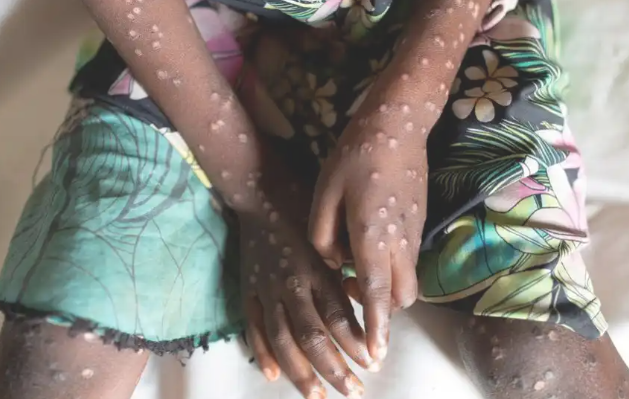The Ministry of Health (MoH) has confirmed Kenya’s first case of Mpox, previously known as monkeypox, at the Taita-Taveta one-stop border point (OSBP).
The patient, who was traveling from Uganda to Rwanda through Kenya, has become the first known case in the country, prompting immediate public health interventions.
In a statement released on Wednesday, the MoH emphasized the importance of avoiding close contact with individuals exhibiting symptoms of Mpox.
The virus, which is known to cause a range of symptoms including fever, headache, skin rash, mucosal lesions, and swollen lymph nodes, has raised concerns due to its potential for person-to-person transmission through direct contact with infectious lesions or respiratory droplets.
Mpox is characterized by a distinct rash that evolves from itchy and painful spots into fluid-filled blisters that eventually scab over.
The fluid in these blisters is highly infectious, raising the risk of transmission through shared items such as towels or toothbrushes.
While many cases present with mild symptoms or none at all, severe cases may require hospitalization and treatment with broad-spectrum antivirals.
The World Health Organization (WHO) has reported that the new strain of the Mpox virus, which is rapidly spreading along the eastern border of the Democratic Republic of Congo, is “the most dangerous yet.”
This strain has been primarily transmitted through sexual contact, though it can also spread through close skin-to-skin interaction. The current outbreak has affected schoolchildren, healthcare workers, and entire households.
In neighboring South Africa, the outbreak has claimed three lives, prompting heightened screening measures at border points.
The Kenyan authorities are now reinforcing surveillance and preventative measures at all entry and exit points to mitigate the spread of Mpox.
Health officials are deploying more resources to border points, increasing the capacity for early detection and response.
This includes temperature checks, health questionnaires, and rapid testing for suspected cases.
The MoH urges the public to remain vigilant, practice good hygiene, and seek medical advice if experiencing symptoms consistent with Mpox.
Citizens are encouraged to avoid close contact with infected individuals and to report any suspected cases to health authorities promptly.
Public awareness campaigns are being launched to educate people about the symptoms, transmission, and prevention of Mpox.
In addition to the immediate health measures, the Kenyan government is collaborating with international health organizations to monitor the situation closely and to ensure that the response is swift and effective.
This includes potential quarantine measures for confirmed cases and the availability of medical supplies and personnel.
The confirmation of Mpox in Kenya highlights the need for regional cooperation in addressing emerging health threats.
The MoH’s swift action in identifying and responding to the case at Taita-Taveta is a crucial step in preventing a wider outbreak.
The public’s cooperation and adherence to health guidelines will be vital in controlling the spread of this virus and safeguarding the health of the population.





















Add Comment